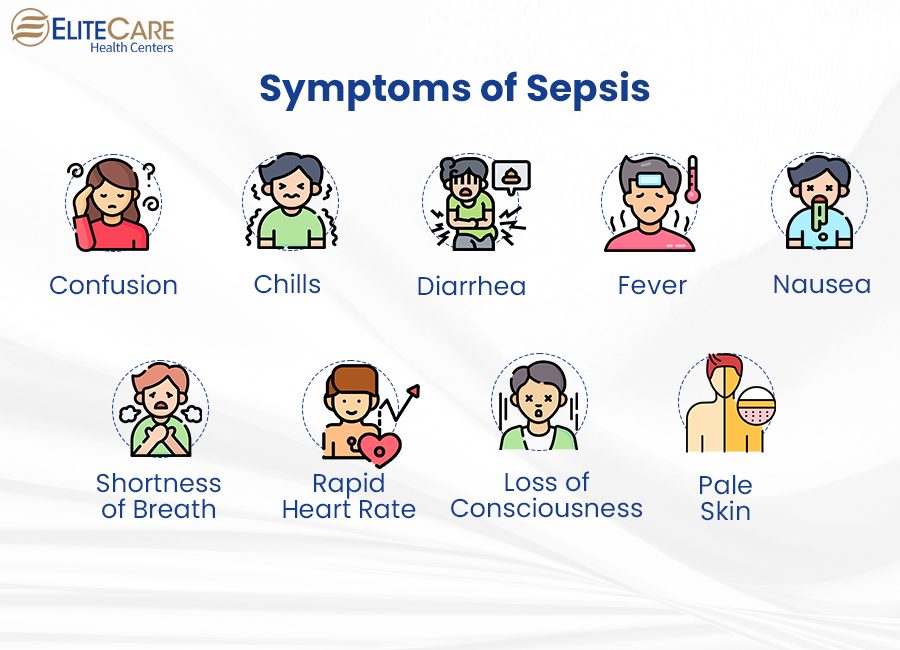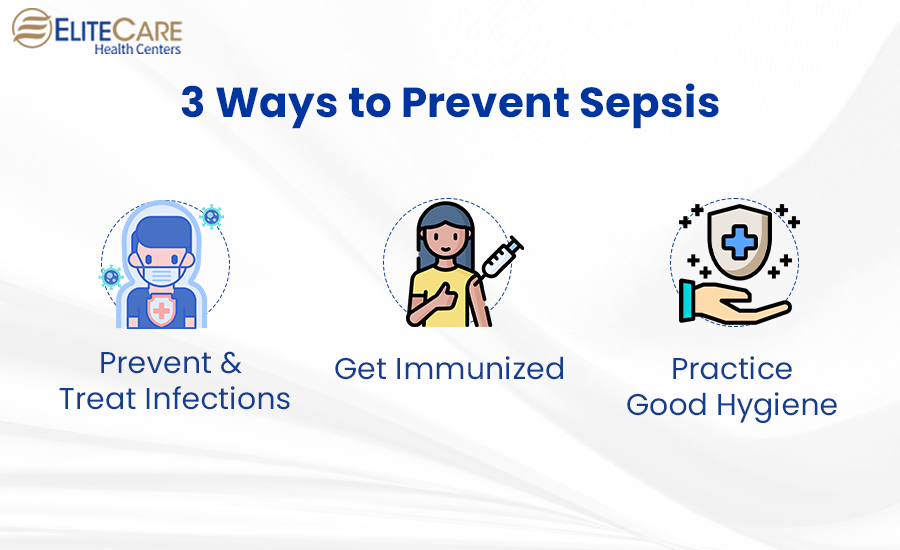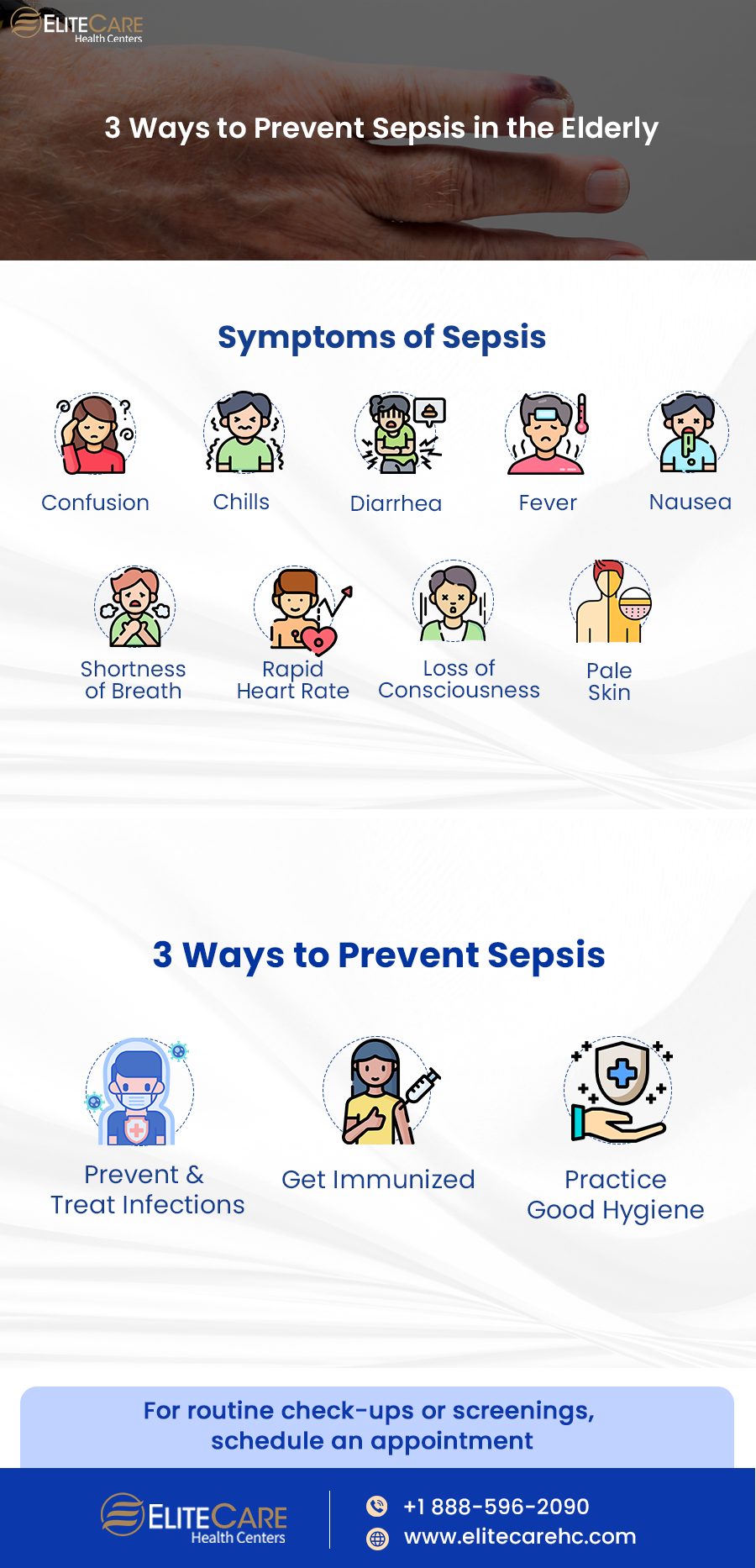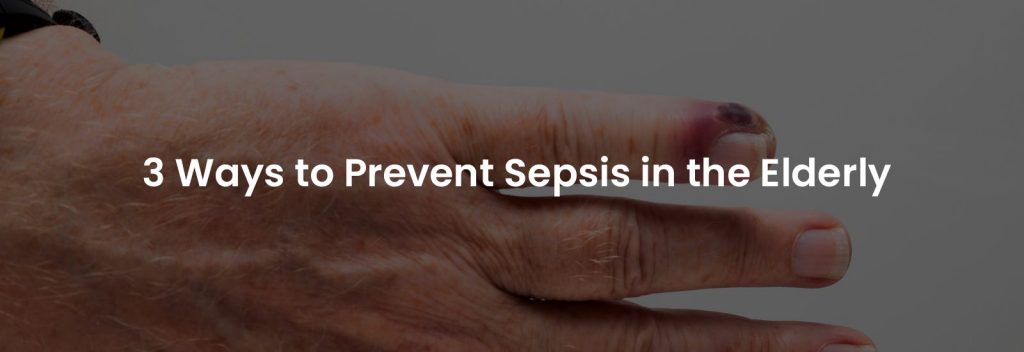
Sepsis is a serious and potentially life-threatening condition that occurs when an infection in the body triggers a strong immune response, leading to inflammation and organ dysfunction. It is estimated that over one million people1 in the United States are affected by sepsis each year, and the elderly are at a higher risk of developing sepsis than any other age group.
In the United States, severe sepsis is relatively common in the elderly as one in four sepsis cases occurs in people aged 65 and older. The mortality rate for seniors suffering from severe sepsis and septic shock is around 60%.
Why Are Senior Citizens at Greater Risk for Sepsis?
The biggest risk factor for sepsis in the elderly is their weakened immune system. Older adults have increased concentrations of inflammatory cytokines like interleukin-6, tumor necrosis factor–alpha, and C-reactive protein (CRP) in their bodies. These inflammatory substances circulate through the bloodstream and weaken the overall immune response. This can make seniors more prone to developing infections. In addition, other age-related changes such as decreased lung capacity, poor cough strength, and weakened respiratory muscles can also increase the risk of sepsis in seniors.
What Are the Symptoms of Sepsis in the Elderly?

Following are a few common warning signs can indicate sepsis in the elderly:
- Confusion
- Shortness of breath
- Rapid heart rate
- Fever
- Pale skin
- Chills
- Diarrhea
- Nausea
- Loss of consciousness
If your elderly loved one presents any of these symptoms, make sure that they receive medical attention promptly as severe sepsis can lead to organ failure and even death.
What Are the Risk Factors for Sepsis in the Elderly?
The risk factors that increase the likelihood of developing sepsis include:
Weak immune system
Immunosenescence, a term used to describe age-related immune system changes, makes older people more susceptible to infections by lowering their immune response.
Comorbid illnesses
Diabetes and chronic kidney disease are linked with an increased risk of sepsis as they can impair the immune system and increase the risk of developing infections, particularly in the urinary tract. If left untreated, these infections can cause sepsis.
Moreover, kidneys are responsible for flushing out waste and toxins from the body. When kidney function declines, these toxins can build up and make a person more susceptible to sepsis.
Malnutrition
Insufficient nutrient intake or malabsorption of nutrients can reduce seniors’ immunity. Malnutrition can also increase the risk of anemia, a condition where the number of red blood cells declines. This can lower the blood’s ability to carry oxygen and weaken the body’s immune system.
The risk of sepsis in seniors can also increase due to other factors like medication, pre-admission functional status and recurrent hospitalization- all of which further weaken an already compromised immune system.
In older adults, diagnosis of sepsis is especially difficult and often goes undiagnosed. This is because seniors with sepsis generally present with atypical, nonspecific symptoms which can be mistaken for other illnesses. Fever is the most recognizable clinical symptom of sepsis, however, about 30-50% of seniors may not present any signs of fever.
Read More: 5 Ways to Prevent Seasonal Flu in Seniors
How to Prevent Sepsis in the Elderly?

Only one-fifth of Americans are over the age of 65, but they make up two-thirds of sepsis patients admitted to hospitals. Despite the advances in the treatment of sepsis, one in three seniors succumb to this condition. It is vital, therefore, to take necessary measures to eliminate the risk of developing this condition.
1. Prevent Infections
Pulmonary and genitourinary infections are the most common cause of sepsis in the elderly. They also make a senior most susceptible to developing wounds and fall injuries which can cause an infection if left untreated.
Therefore, it is very important to treat infections and injuries right away. If a senior is suffering from a urinary tract infection or upper respiratory infection, a physician should be consulted for treatment promptly. Additionally, every cut, scratch, or lesion should be cleaned and covered.
2. Get Immunizations
Older adults who have weak immune systems can develop complications due to common infections. But getting immunizations against contagious diseases can lower the risk of contracting infections altogether.
Therefore, seniors are recommended to get routine vaccinations for influenza, shingles, pneumonia and tetanus to strengthen their immunity against these infections.
3. Practice Good Hygiene
Handwashing is a simple, effective way to help prevent the spread of germs and infections. Washing hands can reduce the spread of many illnesses, including colds, the flu, and other illnesses caused by bacteria and viruses. It can also help reduce the risk of developing skin and eye infections, such as conjunctivitis.
In addition, remember to clean medical instruments that seniors often use such as canes, nebulizers, glucose monitors, etc to avoid the spread of germs. Additionally, finishing a course of prescribed antibiotics and avoiding antibiotics when unnecessary can significantly reduce the risk of sepsis in the elderly.
Read More: Why are eye exams vital for seniors?
Conclusion
Seniors suffering from sepsis are more likely to succumb to the infection during hospitalization. They are also likely to need skilled nursing and rehabilitative care after hospitalization to make a full recovery. Moreover, elderly individuals who survive sepsis tend to experience long-term effects like impaired cognitive function or memory loss. Therefore, it is essential to treat infections and injuries promptly and manage chronic health conditions appropriately.
If your elderly loved one needs medical help, visit the nearest EliteCare center for primary care services. Visit this website to schedule an appointment today.






